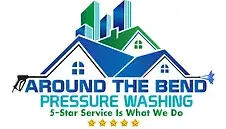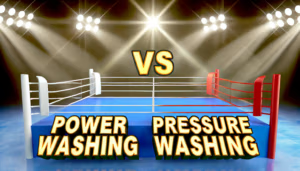Power Washing vs. Pressure Washing: Understanding the Difference for Tallahassee Homes
For homeowners in Tallahassee, maintaining the exterior of your property is crucial due to the city’s humid subtropical climate, which can accelerate the growth of mold, mildew, and algae. Two popular cleaning methods often come up in discussions: power washing and pressure washing.
To dive deeper into this topic, read this blog Power Washing vs. Pressure Washing: Understanding the Difference for Tallahassee Homes.
While these terms are sometimes used interchangeably, they refer to distinct processes. Understanding the difference is key to choosing the right method for your Tallahassee home.
Defining Power Washing and Pressure Washing
Let’s start by clearly defining each method:
1. Pressure Washing
✔ Uses a high-pressure water spray
✔ Typically uses cold or room temperature water
✔ Relies on water pressure to clean surfaces
2. Power Washing
✔ Also uses a high-pressure water spray
✔ Incorporates heated water
✔ Combines pressure with heat for more intensive cleaning
To learn more about another common comparison in the industry, read this blog Pressure Washing and Pressure Cleaning: What’s the Difference?.
The Key Differences
While both methods use high-pressure water sprays, several factors set them apart:
1. Water Temperature
💧 Pressure Washing: Cold or ambient temperature water
🔥 Power Washing: Heated water, typically up to 200°F (93°C)
2. Cleaning Power
⚡ Pressure Washing: Relies primarily on water pressure
🔥 Power Washing: Combines pressure with heat for enhanced cleaning
3. Typical Applications
🏠 Pressure Washing: More versatile, suitable for various surfaces
🏭 Power Washing: Often used for tougher cleaning jobs and commercial applications
To understand if pressure washing is suitable for your home, check out this blog Is It OK to Pressure Wash a House?.
Pressure Washing: A Closer Look
Pressure washing is a versatile cleaning method well-suited for many Tallahassee homes.
1. How It Works
✔ Water is pressurized and expelled through a narrow nozzle
✔ Pressure typically ranges from 1,300 to 3,100 psi (pounds per square inch)
2. Best Uses in Tallahassee
🏠 Cleaning siding (vinyl, wood, fiber cement)
🌳 Washing decks and patios
🚗 Cleaning driveways and walkways
🛑 Removing light to moderate dirt and grime
To explore a softer alternative, check out this blog Differences Between Pressure Washing and Soft Washing.
3. Advantages
✔ Less likely to damage sensitive surfaces
✔ More eco-friendly due to lower water usage
✔ Suitable for regular maintenance cleaning
For homeowners concerned about sustainability, read this blog Eco-Friendly Pressure Washing.
4. Considerations
❌ May not be effective on tough stains or heavily soiled areas
❌ Requires careful technique to avoid damage to softer materials
To be aware of potential downsides, read this blog What Are the Cons of Pressure Washing?.
Power Washing: In-Depth Analysis
Power washing offers additional cleaning power, which can be beneficial in certain situations.
1. How It Works
✔ Combines high-pressure water spray with heated water
✔ Pressure ranges are similar to pressure washing (1,300 to 3,100 psi)
✔ Water is heated to temperatures up to 200°F (93°C)
2. Best Uses in Tallahassee
🛑 Removing tough stains from concrete and masonry
🛑 Cleaning heavily soiled driveways or sidewalks
🛑 Preparing surfaces for painting or sealing
🛑 Tackling stubborn mold or algae growth
3. Advantages
✔ More effective at removing tough stains and grime
✔ Can kill mold and algae more effectively due to heat
✔ Requires less time and effort for heavily soiled areas
Choosing the Right Method for Your Tallahassee Home
Selecting between power washing and pressure washing depends on several factors:
1. Surface Material
🏡 Vinyl Siding: Pressure washing is typically sufficient and safer
🧱 Brick or Concrete: Power washing can be more effective, especially for tough stains
🌲 Wood: Pressure washing with appropriate pressure settings is usually best
2. Level of Dirt and Grime
✔ Light to Moderate Buildup: Pressure washing is often adequate
✔ Heavy Stains or Buildup: Power washing may be necessary
3. Presence of Organic Growth
✔ Light Mold or Algae: Pressure washing with appropriate cleaning solutions
✔ Stubborn Mold or Algae: Power washing’s heat can be more effective
4. Age and Condition of Surfaces
✔ Newer or Well-Maintained Surfaces: Pressure washing is typically sufficient
✔ Older or Neglected Surfaces: May require the additional cleaning power of power washing
5. Environmental Concerns
💧 Water Conservation: Pressure washing generally uses less water
⚡ Energy Efficiency: Power washing requires more energy due to water heating
Tallahassee-Specific Considerations
Tallahassee’s climate and environmental factors influence the choice between power and pressure washing.
1. High Humidity
✔ Promotes faster mold and mildew growth
✔ May necessitate more frequent cleaning, favoring pressure washing for regular maintenance
2. Pollen Seasons
✔ Spring and fall pollen can accumulate on surfaces
✔ Pressure washing is typically sufficient for removing pollen buildup
3. Storm Season
✔ After heavy rains or storms, power washing might be needed to remove resulting grime
4. Local Water Quality
✔ Tallahassee’s water hardness can affect cleaning efficacy
✔ Power washing’s heat can help combat mineral deposits
5. Landscaping Concerns
✔ Pressure washing is generally safer for nearby plants and grass
✔ Care must be taken with power washing to protect vegetation
Conclusion
Understanding the difference between power washing and pressure washing is crucial for Tallahassee homeowners looking to maintain their property effectively.
🏡 Pressure washing offers a versatile and safer option for regular maintenance.
🛑 Power washing provides additional cleaning power for tougher jobs.
By choosing the right method and maintaining a regular cleaning schedule, you can ensure your Tallahassee home remains beautiful and well-maintained for years to come! 🚀


1 thought on “Power Washing vs. Pressure Washing: Understanding the Difference for Tallahassee Homes”
Pingback: What is the Difference Between Pressure Washing and Pressure Cleaning? 5 Essential Differences - Tallahassee Pressure Washing Services